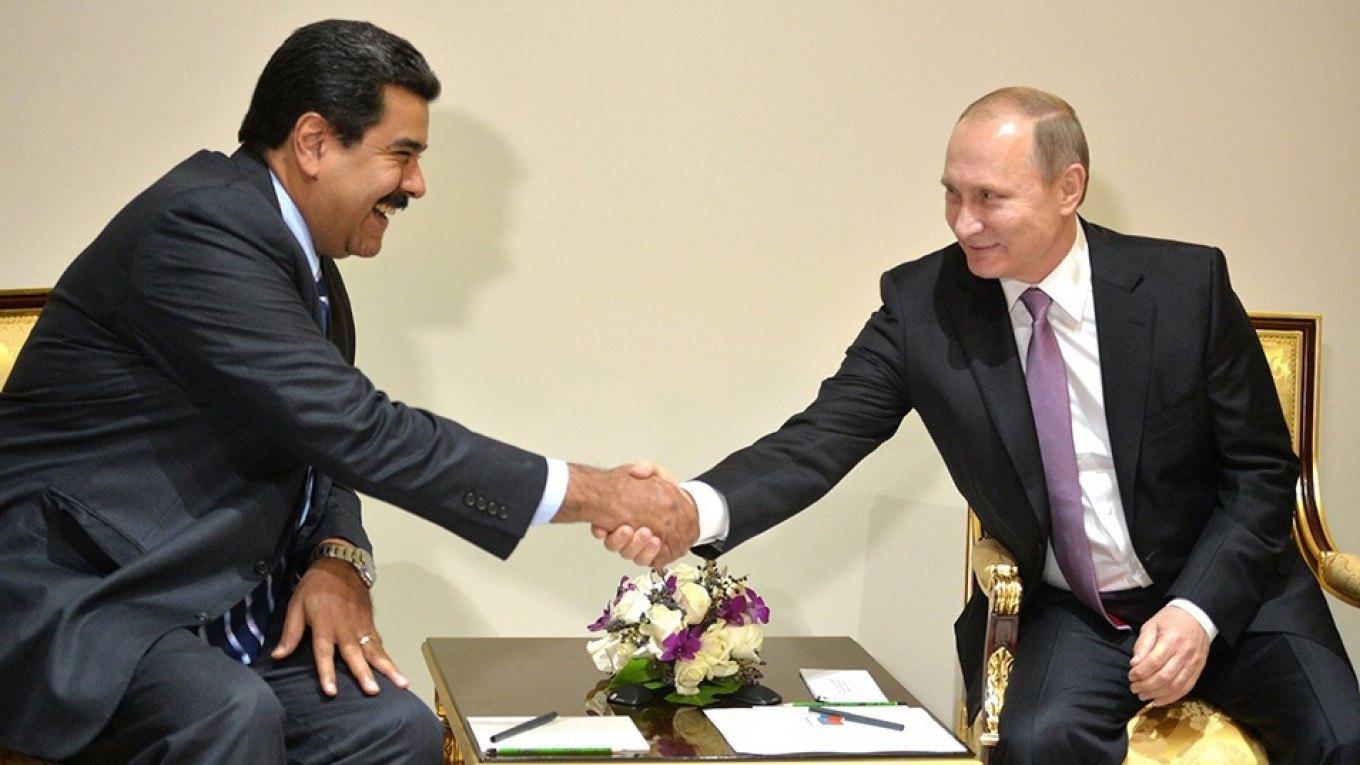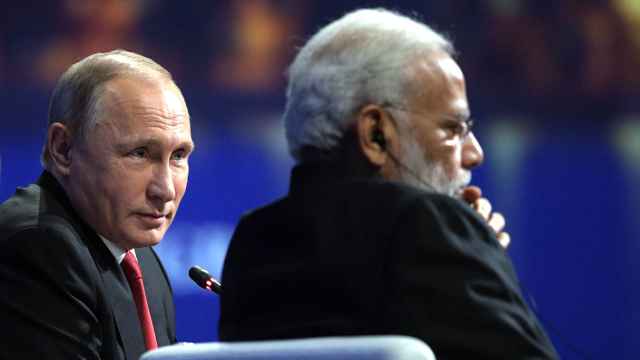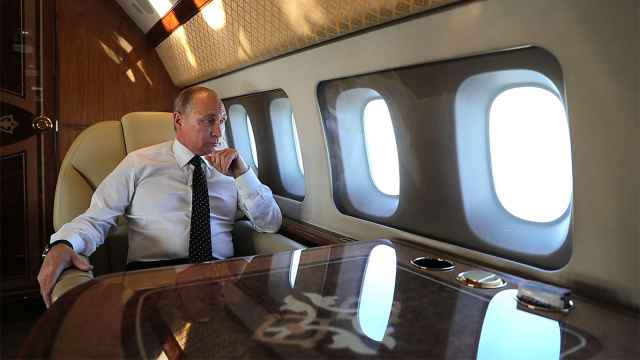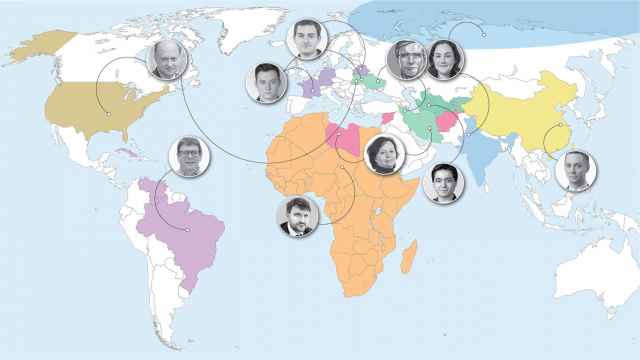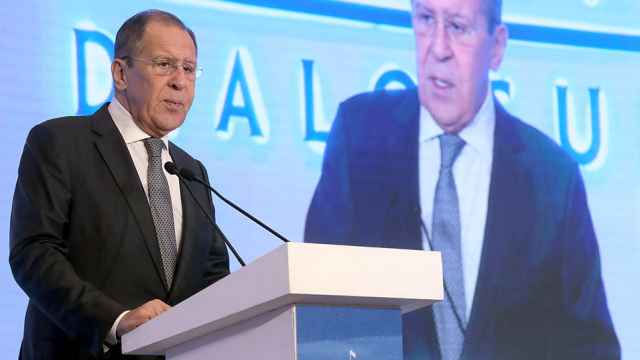While Venezuela’s opposition is fighting for support at home and abroad, Russia is bound to remain loyal to the country’s socialist government of Nicolás Maduro. From Moscow’s point of view, having the conflict turn into a prolonged impasse would be preferable to a clear resolution. And the Kremlin is working on it.
Russia has sent a group of private military contractors to Venezuela, Reuters reported on Friday. A source close to the contractors told Reuters that there might be about 400 Russian contractors associated with the so-called Wagner group operating in Venezuela.
With the exception of Bolivia, Cuba, Nicaragua, and Mexico (Mexico said it was willing to mediate in the Venezuelan crisis), the Western Hemisphere has supported Juan Guaidó, president of the National Assembly of Venezuela, who earlier this week declared himself interim president of the republic. China, Russia, Syria, and Turkey have stuck with Maduro. In a sign that the conflict may take a long time to work out, Venezuela’s armed forces have confirmed their allegiance to the government. Defense Minister Vladimir Padrino said the military would oppose any effort to remove Maduro.
This is not the first time that Russia has propped up the embattled leader of a messed-up regime. In some cases, such as in Syria, the target of the insurrection has ended up more firmly entrenched in power than before the aborted revolution. In other cases, such as in Ukraine, the regime fell, but Moscow has been able to hold on to some form of leverage by bolstering antiregime or separatist forces.
The fate of the country and the populace in question is of far less importance to the Kremlin. In fact, the deeper the hole an insecure nation finds itself in, the more easily it becomes the subject of endless negotiations between Moscow and other concerned parties.
Bottomless political holes are Moscow’s element. The Kremlin knows how to create conflicts and is never in a hurry to end them. Simmering conflict maximizes Moscow’s advantages, not any real solution. Russia is surrounded by places caught in dead-end infighting, and some conflicts, like those in Nagorno-Karabakh or Transnistria, have been around for decades.
Venezuela is, of course, a difficult terrain for Moscow to operate in. It is literally Russia’s most distant ally, both geographically and in weight of significance. Russia is not the main stakeholder in Venezuela. Of the big players involved, it is a distant third or fourth, depending on how one counts. The United States, China, and large regional powers, including Brazil, all have more immediate interests in the troubled nation.
And yet Moscow has a cause in Venezuela. The socialist regime founded by the late Hugo Chávez may be incompetent and brutal, but it has been around for almost twenty years, confirmed in power by many national elections. The embattled standard-bearer of Chavismo, Nicolás Maduro, was just recently inaugurated for his second six-year term in office.
The Venezuelan opposition leaders disputed the 2018 presidential election as unfair and flawed. The United States, the Organization of American States, and the EU all rejected the electoral process. Even the UN said the 2018 vote did not meet minimal conditions for free and credible elections. But China, Cuba, Iran, North Korea, Russia, Syria, and Turkey all supported Maduro. And in 2019 the division runs along similar lines.
Since 2006, Russia and its state-owned companies have provided Venezuela with credit and investment in the amount of $17 billion or more. Shares in Russia’s oil giant Rosneft, which has invested in a number of joint ventures in Venezuela, lost 2.6 percent on Thursday. “The most unpleasant scenario for Rosneft now is the change of power in the country and the revision of contracts,” Dmitry Marinchenko, an analyst with Fitch Ratings in Moscow, was quoted by Reuters as saying. Rosneft could also lose up to about $3 billion of its prepayment for supplies of Venezuelan oil.
When news of the latest unrest in Venezuela first broke, independent Russian commentators started pointing to Moscow’s liabilities. But those potential losses are not critical, business analysts say. China’s are much larger: estimates put China’s investments in Venezuela as high as $70 billion over the past fifteen years. Russia, in turn, has never really treated its stake in Venezuela as a purely business proposition. Vladimir Putin thinks in terms of the distribution of power—geopolitical gains and losses—among big political actors.
Moscow is invested in a regime that has been legally elected, not just in oil fields and gold mines. This commitment allows the Kremlin to claim that its position better accords with international law than that of the United States or most of Venezuela’s neighbors.
The longer the conflict teeters on the brink, the greater the chance that it will turn into a prolonged civil stand-off. Russia has used its ties with the Chávez and now Maduro regime to supply billions’ worth of weaponry to Venezuela and to land Russian nuclear-capable bombers in Venezuela. Moscow is highly unlikely to intervene militarily in case the going gets tough, most pro-Kremlin and independent commentators say. But for its purposes, Moscow does not need a serious force on the ground. It just needs a small, easily deniable presence to keep the conflict from resolving itself quickly. Meanwhile, Russia will continue tirelessly promoting its stance on the illegality of regime change in any shape or form.
One of the main targets of the Kremlin’s drive would be Brazil, as it is part of BRICS, an international grouping that also includes Russia, India, China, and South Africa. “Brazil is hosting the summit of the group later this year,” Fyodor Lukyanov, editor-in-chief of Russia in Global Affairs magazine and head of the Council for Foreign and Defense Policy, an NGO, wrote on his Telegram blog. “And engaging in regime change goes against all principles of this organization.” Russia and Brazil treat each other as strategic partners and have an agreement of military cooperation, Lukyanov added.
Moscow’s “business” in Venezuela may easily collapse, as most powers in the Western Hemisphere support Maduro’s adversaries. But Russia does not really need an unequivocal victory there. The Kremlin does not have much power in the region, but it has enough to put its foot in the door and push Venezuela deeper into a hole.
This article was originally published at the Kennan Institute.
A Message from The Moscow Times:
Dear readers,
We are facing unprecedented challenges. Russia's Prosecutor General's Office has designated The Moscow Times as an "undesirable" organization, criminalizing our work and putting our staff at risk of prosecution. This follows our earlier unjust labeling as a "foreign agent."
These actions are direct attempts to silence independent journalism in Russia. The authorities claim our work "discredits the decisions of the Russian leadership." We see things differently: we strive to provide accurate, unbiased reporting on Russia.
We, the journalists of The Moscow Times, refuse to be silenced. But to continue our work, we need your help.
Your support, no matter how small, makes a world of difference. If you can, please support us monthly starting from just $2. It's quick to set up, and every contribution makes a significant impact.
By supporting The Moscow Times, you're defending open, independent journalism in the face of repression. Thank you for standing with us.
Remind me later.



